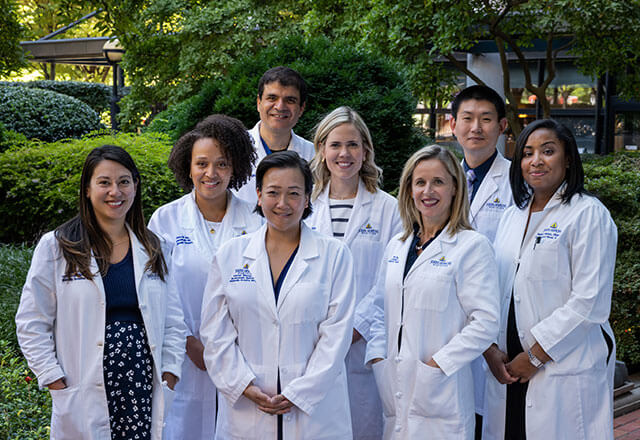-
Karen C. Wang, MD

Expertise: Gynecology
Primary Location: Howard County Medical Pavilion, Columbia, MD
-
Kristin Elizabeth Patzkowsky, MD

Expertise: Gynecology
Primary Location: Johns Hopkins Health Care & Surgery Center - Green Spring Station, Lutherville, Lutherville, MD
-
Khara Simpson, MD
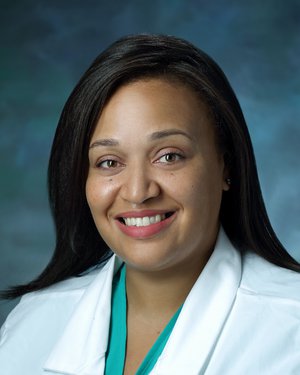
Expertise: Gynecology
Primary Location: Johns Hopkins Health Care & Surgery Center - Green Spring Station, Lutherville, Lutherville, MD
-
Harold Y. Wu, MD

Expertise: Gynecology
Primary Location: Johns Hopkins Health Care & Surgery Center - Green Spring Station, Lutherville, Lutherville, MD
-
Anja S. Frost, MD
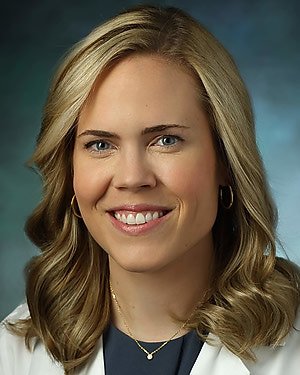
Expertise: Gynecology
Primary Location: Howard County Medical Pavilion, Columbia, MD
-
Mostafa Borahay, MD MBA PhD
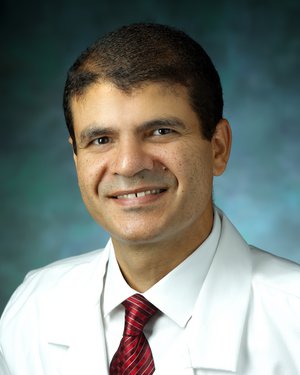
Expertise: Obstetrics and Gynecology
Primary Location: Johns Hopkins Community Physicians - Johns Hopkins Health Care & Surgery Center, White Marsh, Nottingham, MD
-
Vicky V. Vargas, MD MS
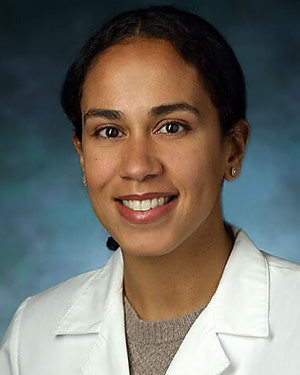
Expertise: Gender Affirming Care, Gynecology
Primary Location: Sibley Memorial Hospital, Washington, DC
At Johns Hopkins, our experts specialize in advanced minimally invasive surgical techniques, including complex hysteroscopic, gynecologic laparoscopic/robotic, and fertility related surgery, to treat a range of complex gynecologic conditions such as fibroids, abnormal bleeding, endometriosis and ovarian cysts. Unlike traditional methods, minimally invasive surgery is performed using small, precise incisions and thus is a safer alternative with many other benefits. Our compassionate patient-centric surgeons are committed to improving the quality of life of our patients – and work with you to develop a treatment plan that is best for you.
Conditions We Treat
If you're experiencing the following symptoms, your doctor may refer you to one of our minimally invasive gynecologic surgeons for care.
-
Endometriosis is a chronic benign condition with a range of symptoms including none, formation of ovarian cysts or pelvic or abdominal masses, and can cause heavy bleeding, pelvic pain and affect fertility. Your gynecologist may recommend surgery as a treatment option and refer you to our group. With advances in surgical techniques, surgery for the treatment of endometriosis can be highly successful and treat the pain and fertility issues caused by the condition. Our team has extensive experience in treating complex cases of endometriosis.
-
Menorrhagia is a common gynecological condition that is characterized by prolonged, heavy menstrual bleeding. If you have a uterine lining issue and medical management has not been effective, surgical treatment may be necessary.
-
Treatment for chronic pelvic pain is tailored to each patient, depending on the underlying causes of the pain. We perform surgeries to evaluate and treat adhesions and endometriosis.
-
Uterine fibroids (also known as myomas or leiomyomas) are benign smooth muscle tumors that grow within the uterus. Some may cause abnormal uterine bleeding- heavy or prolonged, pressure, pain or impact the bladder and intestines. In some situations, fibroids can impact fertility and removal can improve pregnancy outcomes. Myomectomy is the procedure where fibroids are separated from the uterus.
In cases where fertility is not a consideration and when patients desire definitive management of fibroids, hysterectomy is the procedure where fibroids and the uterus are removed to resolve symptoms permanently.
-
Ovarian cysts or fallopian tube cysts sometimes tumors grow in the gynecological tract but are typically benign. However, surgical removal is recommended in certain situations because these tumors may be causing pain or affecting functionality of the organs involved.
-
In the journey through infertility treatment, some women learn they have a gynecological issue interfering with their ability to conceive that can be corrected through a surgical procedure. Procedures that may be used to correct conditions that are interfering with a woman’s ability to get or stay pregnant can be managed with a minimally invasive approach with hysteroscopy, laparoscopy and robot assisted surgery.
-
Women who have delivered by C-section can have uterine scarring that causes infertility, pain, and abnormal bleeding. Hysteroscopic resection and/or laparoscopic repair can reduce a woman's symptoms.
-
In cases where the cervix opens too early during a pregnancy, a cerclage can be placed to help hold the pregnancy in the uterus. This can be performed using minimally invasive techniques.
-
Some women are born with a different shaped uterus which can cause pain or abnormal bleeding that requires surgery. Hysteroscopy or laparoscopy/robot assisted surgery can be used to manage some of these conditions.
Our Specialized Treatments
Our physicians are available for on-site and virtual consultation services at every stage of your health care journey. Learn more about the variety of minimally invasive surgical treatments we offer and what they treat.
-
Hysterectomy refers to the removal of the uterus. Hysterectomies are performed vaginally, laparoscopically (total or supracervical [with or without robotic assistance] or abdominally. Bilateral salpingo-oophorectomy, is a surgical procedure in which both of the ovaries and the fallopian tubes are removed. Removal of the tubes can reduce the risk of ovarian cancer. Removal of the ovaries is not always indicated.
Hysterectomies are performed to treat gynecologic conditions such as abnormal uterine bleeding, fibroids, adenomyosis, endometriosis, pelvic pain.
Learn more about hysterectomy. -
Laparoscopy refers to the use of small instruments to perform gynecologic surgery. A laparoscope is a thin long camera which allows your surgeon to visualize your anatomy as they perform surgery. Advantages of the small incisions include less bleeding, less risk of infection, less pain, and faster recovery.
Laparoscopy or robot assisted laparoscopy is used to assist a variety of treatments, including:
- Removal of benign tumors (such as ovarian cysts, fibroids)
- Removal of uterus
- Evaluation of endometriosis and scar tissue
- Surgical management of endometriosis
- Removal of fallopian tube devices
- Removal of ovarian cysts
- Removal of the cervix (trachelectomy)
-
Myomectomy is a procedure in which fibroids are surgically removed. Approach to myomectomy varies based on the location, number and size of the fibroids. Fibroid evaluation can include imaging (ultrasound or MRI), blood work, and tissue sampling. This procedure is intended for women who want to preserve the uterus for fertility reasons or personal reasons.
-
Hysteroscopy is used to diagnose or treat problems in the cavity of the uterus. A hysteroscope is a thin, lighted camera that is inserted through your vagina into your uterus. The hysteroscope transmits the image of your uterus onto a screen. Other instruments are used along with the hysteroscope for treatment. This can be used for treatment of many conditions such as evaluation of abnormal bleeding, removal of fibroids or polyps, removal of retained IUD, or uterine septum.
Uterine Fibroids: Symptoms and Management Options with Bloodless Medicine
Living with uterine fibroids can be painful. Dr. Harold Wu, minimally invasive gynecologic surgeon, and Dr. Steven Frank, medical director for the Bloodless Medicine and Surgery Program, discuss ways women can best manage their fibroids. They will explain various symptoms and treatment options, including the use of bloodless medicine.
Why Choose Johns Hopkins for Minimally Invasive Gynecologic Surgery
Personalized Care

Top Doctors
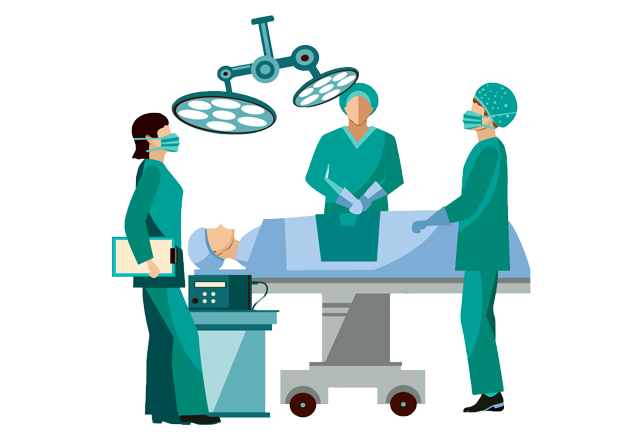
Advanced Treatments
Coordinated Care Across Disciplines

Maybel J. Wahab, MSN, CNM

Our Care Locations
Gynecology and Obstetrics — Nelson/Harvey Building
600 North Wolfe St
Nelson/Harvey Building, 2nd Floor
Baltimore, MD 21287
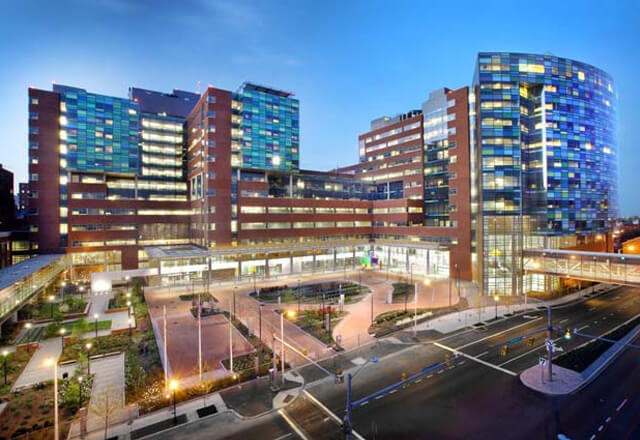
Johns Hopkins Bayview Medical Center
Baltimore, MD 21224
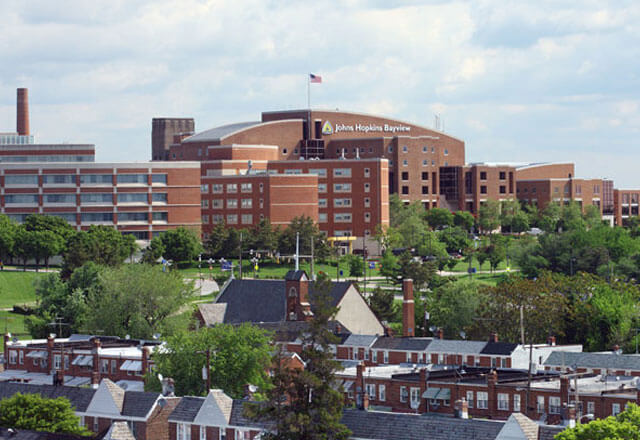
Johns Hopkins Health Care & Surgery Center — Green Spring Station, Lutherville (Pavilion II)
10753 Falls Rd
Pavilion II
Lutherville, MD 21093

Levi Watkins, Jr, MD, Outpatient Center
601 N. Caroline St
Baltimore, MD 21287
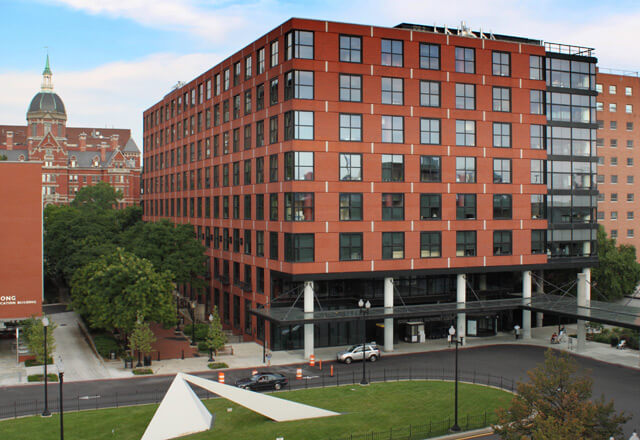
Sibley Memorial Hospital
5255 Loughboro Rd, NW
Washington, DC 20016
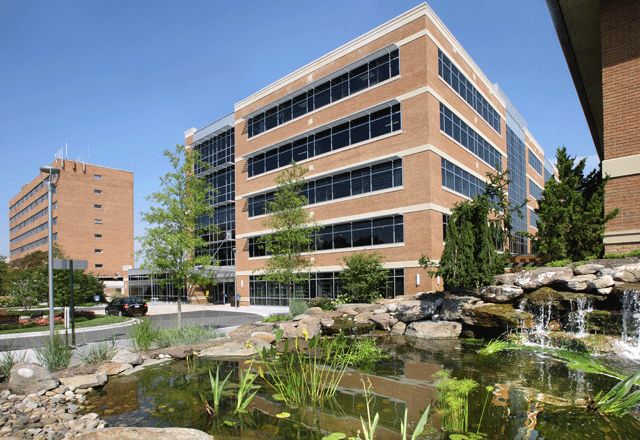
Gynecology and Obstetrics — Howard County
10710 Charter Dr
Medical Pavilion, Ste 200
Columbia, MD 21044
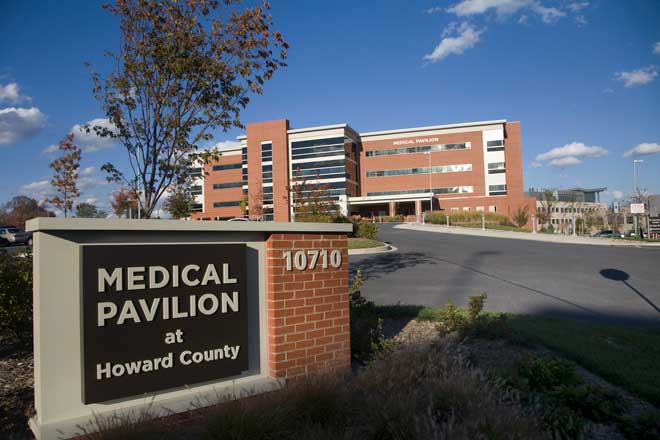
Ask Our Experts: FAQs about Gynecologic Surgery by Condition
We offer surgery for many common gynecologic conditions. Our physicians answered frequently asked questions about our most common conditions: fibroids, endometriosis, and ovarian cysts.
Fibroids Q&A with Drs. Patzkowsky and Wang
Endometriosis Q&A with Dr. Patzkowsky
Ovarian Cysts Q&A with Dr. Wang
Dr. Karen Wang, minimally invasive surgeon from the department of Gynecology and Obstetrics, answers common questions about ovarian cyst symptoms and treatment options.
Myths & Misconceptions: Understanding Endometriosis and Uterine Fibroids

